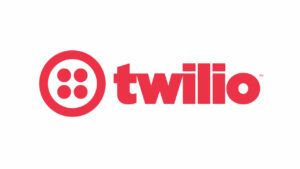By Beatriz Marie D. Cruz, Reporter
SYDNEY, AUSTRALIA — US-based customer engagement platform Twilio expects demand for artificial intelligence (AI)-driven voice bots to grow in the Asia Pacific & Japan (APJ) region as more businesses seek to personalize customer support.
“I think voice and voice AI is the area of renaissance,” Twilio Chief Revenue Officer Thomas Wyatt told BusinessWorld on the sidelines of SIGNAL 2025, a conference hosted by Twilio, on Oct. 16.
“What wasn’t possible in the past in terms of automating voice and driving personalization is now possible with the combination of the core data and an understanding of the person you’re interacting with,” he said. “You combine that with the real-time nature of a voice communications primitive like Twilio, combine that with a large language model, and you can have these incredible voice AI assistant experiences that make it a lot easier to deliver.”
Twilio helps companies build and embed communication features into their applications by integrating data, communications tools, and AI.
Clients mainly tap the platform for key functions like short message service marketing, contact center support, bulk text messaging and e-mail, and voice response system.
Mr. Wyatt said they expect continued revenue growth in the APJ region driven by their growing market penetration and through partnerships with independent software vendors and system integrators.
For the APJ market, he also expects continued demand for Twilio’s messaging solutions.
“In general, messaging is always going to be the lion’s share of almost every region, including APJ,” he said.
“There’s a lot of voice, Twilio Flex, contact center capabilities and use cases that are in the region, particularly in the Philippines, where there’s a lot of business process optimization and customer support centers. We see those products do really well here.”
The Philippines’ information technology-business process management industry is expected to generate $40 billion in export revenue and increase its workforce to 1.9 million this year, according to the IT & Business Process Association of the Philippines.
Mr. Wyatt added that Twilio is increasing investments across its product portfolio to allow its customers to use its other products.
“The lion’s share of our customers still use only one or two of Twilio’s products, but there’s a lot of natural value-add synergies if you use more,” he said.
“We’re investing heavily in the product architecture to make it easier to consume more Twilio services across messaging, voice, security, e-mail, and personalization data.”
The company is also looking to expand its product offerings across its markets, like rich communication services messaging and silent network authentication.
Other opportunities in the Philippine market that would drive demand for Twilio’s products include the need to eliminate fraud in companies’ platforms through advanced verification, as well as targeted advertising and marketing, Mr. Wyatt said.
He said companies need to upskill their employees to better integrate modern technologies into their workflows.
Twilio’s products have been deployed across 180 countries, serving industries like financial services, electronic commerce, transportation, retail, and airlines.
As of early 2025, it has a market cap of $14 billion.
